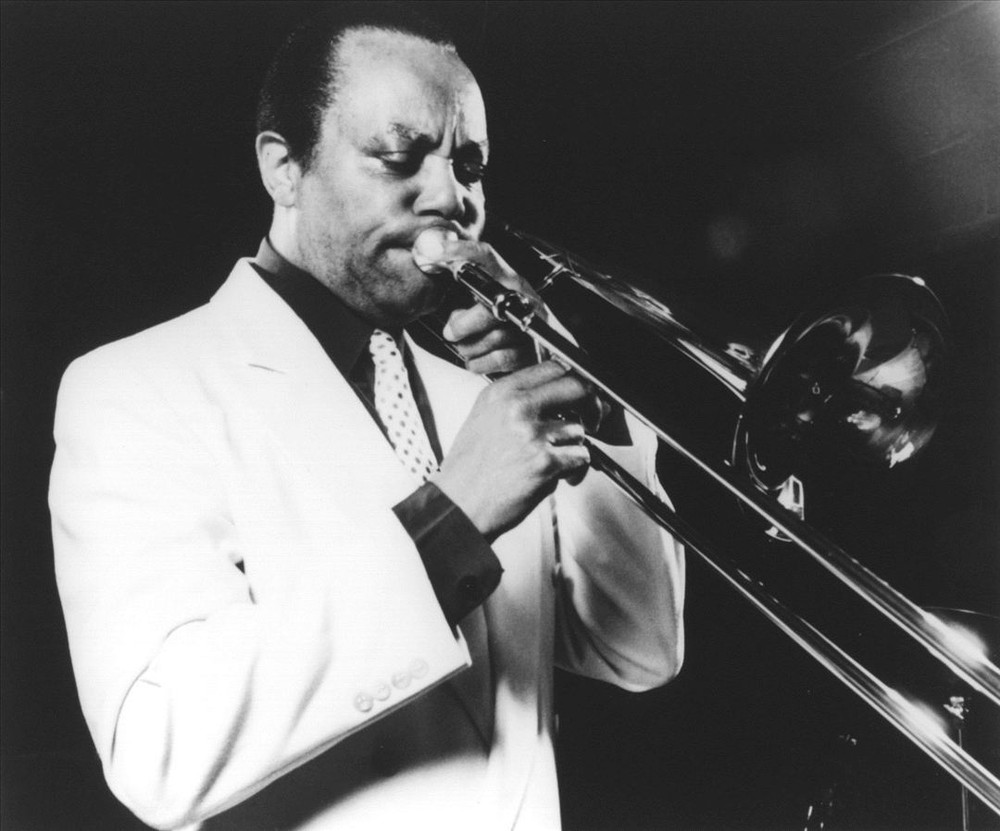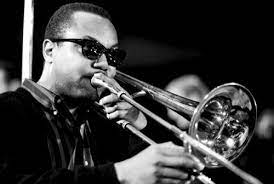Early Life:
Born on January 22, 1924, in Indianapolis, Indiana, James Louis “J.J.” Johnson would grow up to become one of the most influential jazz trombonists in history. From an early age, Johnson displayed a remarkable talent for music, initially playing the piano before discovering his true passion for the trombone.
Rise to Prominence:
In the 1940s, Johnson emerged onto the jazz scene during its golden era, making a name for himself with his virtuosic trombone skills. His innovative approach to the instrument, characterized by technical precision and a rich, warm tone, set him apart from his contemporaries.
J.J. Johnson’s career took a significant turn when he joined the big band led by Benny Carter in 1942, providing him with a platform to showcase his talents on a broader stage. Subsequently, he worked with some of the biggest names in jazz, including Count Basie and Dizzy Gillespie, solidifying his reputation as a groundbreaking trombonist.
BeBop Revolution:
The post-war years marked the advent of bebop, a revolutionary genre that sought to break away from traditional jazz conventions. J.J. Johnson embraced this movement, becoming a key figure in the development of bebop as he collaborated extensively with Charlie Parker and Dizzy Gillespie. His recordings with these jazz legends remain iconic and represent a pivotal moment in the evolution of the genre.
Innovations in Trombone Technique:
J.J. Johnson’s contributions to the trombone extended beyond his performances. He played a crucial role in expanding the instrument’s range and technical capabilities. His speed, agility, and ability to navigate complex harmonic structures earned him a reputation as a trailblazer, inspiring future generations of trombonists.
Later Career and Legacy:
Throughout the 1950s and 1960s, J.J. Johnson continued to push the boundaries of jazz. His work as a solo artist and in collaborations showcased his versatility and deep understanding of musical expression. Despite facing personal and professional challenges, including a brief hiatus from the music scene in the 1970s, Johnson returned with renewed vigor in the 1980s.
J.J. Johnson’s legacy endures not only through his recordings but also through his influence on succeeding generations of musicians. His impact on jazz trombone playing remains unparalleled, and his compositions are studied and admired by aspiring jazz artists worldwide.
Awards and Honors:
J.J. Johnson received numerous accolades throughout his career, including multiple Grammy Awards for his recordings. In 1996, he was designated a National Endowment for the Arts Jazz Master, a fitting tribute to his enduring contributions to the world of jazz.
Final Years:
J.J. Johnson continued to perform and teach until his passing on February 4, 2001, leaving behind a legacy that forever changed the landscape of jazz music. His dedication to innovation, technical prowess, and artistic expression solidify his place as one of the greatest jazz trombonists of all time.


No responses yet